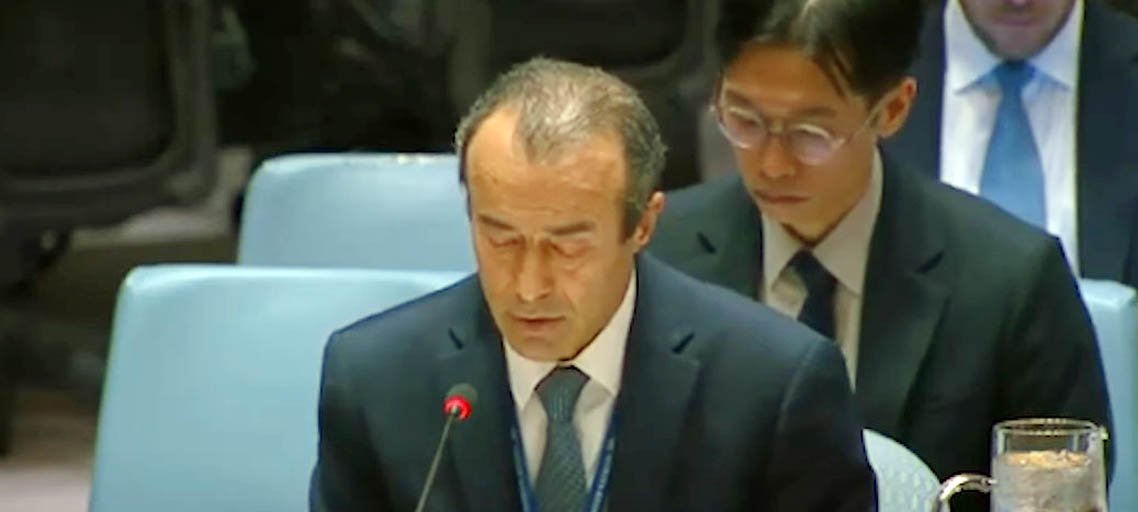December 30, 2024
A senior United Nations official has called for an urgent halt to hostilities between Israel and Yemen’s Houthi rebels. The official expressed severe concern about the recent increase of attacks, saying that the increasing conflict could destabilize the region, hinder humanitarian aid, and cause a bigger crisis.
—
A Dangerous Escalation
The conflicts have reached unprecedented heights in recent weeks, with Israel and Yemen’s Houthi rebels exchanging attacks that have gained global attention. Israeli airstrikes attacked Sanaa International Airport, the key center for humanitarian activities in Yemen. The strikes coincided with the visit of WHO Director-General Tedros Adhanom Ghebreyesus, who narrowly averted injury.
WHO Director-General Tedros described the incident as “harrowing,” noting, “It was anarchy; the sound of explosions was deafening. This violence jeopardizes the lives of millions who rely on humanitarian assistance.”
The Israeli military defended its actions by stating that Houthi rebels and Iranian operatives were utilizing the airport for hostile activities. These assertions have been met with vehement denials by Houthi officials, who consider the strikes as acts of aggression against Yemen’s sovereignty.
—
Houthi Retaliation and Regional Implications
In reaction to the Israeli attacks, the Houthis launched missiles and drones against Israel, including an attack on Ben Gurion Airport and a power plant. The Houthis presented their actions as sympathy with Palestinians in Gaza, where the continuous fighting has taken thousands of lives.
Houthi commander Abdul-Malik al-Houthi remarked, “Our actions are a direct response to the massacres in Gaza. We shall maintain our struggle until justice wins.”
The tension has also spilled into the Red Sea, a crucial global trade route. Reports indicate that Houthi forces have targeted commercial vessels, further heightening fears about the conflict’s economic ramifications.
—
Humanitarian Crisis Worsens
The fighting has severe effects for civilians in Yemen, where the humanitarian situation is already dire. Over 21 million individuals, over two-thirds of the population, require urgent assistance. The damage of Sanaa International Airport delays the transportation of food, medicine, and other supplies.
UNICEF’s regional director for the Middle East, Adele Khodr, observed, “Children in Yemen are paying the hardest price. Without humanitarian relief, many may suffer famine and disease.”
In Israel, civilians experience daily threats of missile and drone attacks, creating an environment of dread and insecurity. Schools, businesses, and healthcare institutions are disrupted, adding the psychological toll on affected populations.

—
International Reactions
The world community has been vociferous about the worsening problem. Israeli Prime Minister Benjamin Netanyahu justified his government’s actions, declaring, “Israel has the right to defend itself against attacks from Houthi and Iranian proxies. Our actions are not simply for Israel’s security but for the stability of the global trade routes.”
Conversely, Iranian officials decried the strikes as violations of international law, calling for a halt to Israel’s military activities in Yemen. Other nations, particularly the United States and members of the European Union, have encouraged prudence and underlined the significance of diplomatic solutions.
—
Call for De-escalation
The UN’s senior humanitarian affairs official, Martin Griffiths, appealed to all sides to display maximum caution and engage in discussion. He highlighted that the international community must intervene swiftly to prevent further loss of life and mitigate the rising humanitarian situation.
Griffiths added, “Continued escalation will have terrible consequences for millions in Yemen, Israel, and the surrounding region. Diplomacy must take precedence before violence.”
—
Economic and Political Implications
The dispute threatens to disrupt global energy and commercial flows through the Red Sea, one of the world’s busiest maritime lanes. Experts worry that prolonged volatility might lead to increasing shipping costs, fuel prices, and economic strain on fragile countries depending on imports.
Political observers also note to the conflict’s potential to reshape alliances in the Middle East, dragging in regional powers such as Saudi Arabia and Iran. This role could further complicate efforts to facilitate peace.
—
A Broader Humanitarian Appeal
The rising crisis highlights the urgent need for a worldwide response. Aid organizations are seeking for additional financing to handle the mounting needs in Yemen and nearby regions. The UN continues to call for accessible humanitarian corridors and the early resumption of relief operations.
Humanity must come first,” stated Antonio Guterres, UN Secretary-General. “We cannot allow the horrors of war to overshadow the need for peace and compassion.”
—
Conclusion
As tensions continue to increase, the path to peace remains uncertain. The international community must cooperate cooperatively to de-escalate the violence, protect civilians, and address the core causes of the crisis. The voices of those affected—families torn apart, children left hungry, and communities wrecked by violence—must guide efforts toward a durable conclusion.
—
Sources
- Reuters: “Israel, at UN, warns Houthis risk sharing same fate as Hamas, Hezbollah.”
- Associated Press: “Israeli airstrikes hit a Yemen airport amid growing tensions.”
- The Sun: “WHO boss narrowly escapes harm during airstrikes in Yemen.”
- Anadolu Agency: “UN official warns against escalation in Middle East.”
- UN News: “UN calls for restraint in the face of rising hostilities.”

